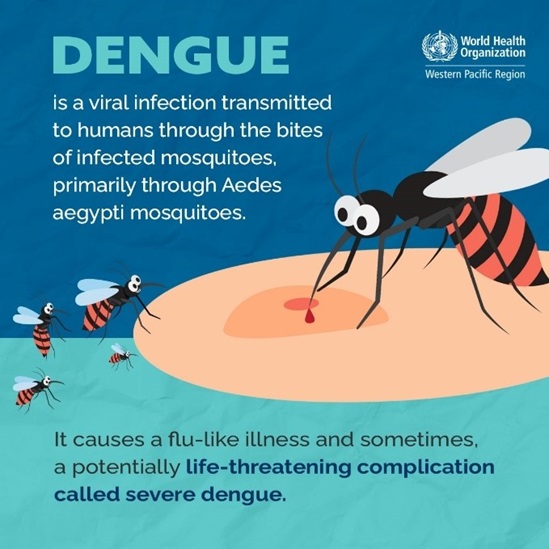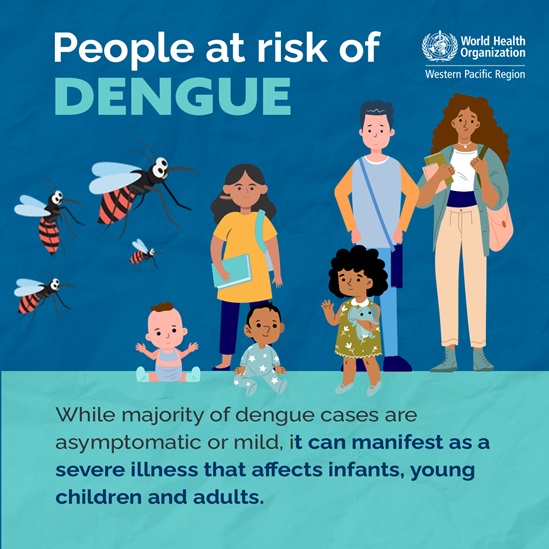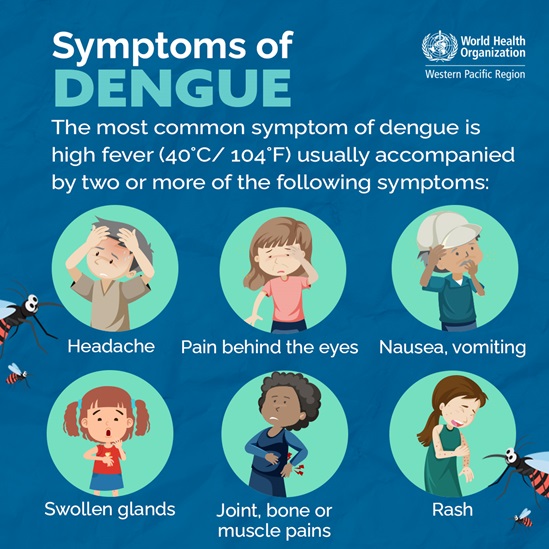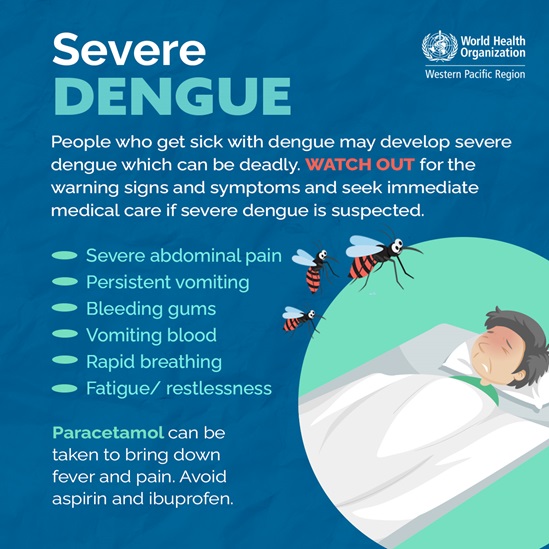Bite by an Aedes mosquito. This species can transmit diseases such as chikungunya, dengue, and Zika.
Dengue and severe dengue
Dengue is a viral infection transmitted to humans through the bite of infected mosquitoes, primarily through Aedes aegypti mosquitoes and, to a lesser extent, Aedes albopictus. It is the most rapidly spreading mosquito-borne viral disease in the world. More than 3.9 billion people in over 129 countries are at risk of contracting dengue, with an estimated 96 million symptomatic cases and an estimated 40 000 deaths every year. Cases of dengue has increased over six folds since 2000.
In the Western Pacific Region, at least 15 countries report dengue infections with many more cases reported every 2-3 years due to seasonality. During peak years, countries in the Region report an estimated 450 000 suspected cases.
Dengue causes flu-like symptoms and lasts for 2-7 days. Symptoms can be mild or severe, sometimes causing complications or death. The most common symptom of dengue is fever which usually occurs after an incubation period of 4-10 days after the bite of the infected mosquito.
High fever (40°C/ 104°F) is usually accompanied by at least two of the following symptoms:
- Headaches
- Pain behind the eyes
- Nausea, vomiting
- Swollen glands
- Joint, bone or muscle pains
- Rash
The disease may develop into severe dengue with the onset of warning signs occurring around 3 to 7 days after the first sign of illness despite a decrease in fever. Severe dengue is a leading cause of serious illness and death in countries across the Western Pacific Region.
Special attention needs to be given to these signs and symptoms as they indicate the need for immediate medical care.
- Severe abdominal pain
- Persistent vomiting
- Bleeding gums
- Vomiting blood
- Rapid breathing
- Fatigue/ restlessness
- Small red spots on the lips, fingers, etc.
Most people who get sick with dengue will recover in about a week. They should seek medical advice, rest and drink plenty of fluids. There is no vaccine or specific medication to treat dengue. Paracetamol can be taken to bring down fever and pain. However, aspirin or ibuprofen should not be taken since they can increase the risk of bleeding.
Since dengue mosquito bites primarily during the day with peak activity at dawn and dusk, effective prevention measures include:
- Using mosquito repellents (containing DEET, IR3535 or Icaridin)
- Wearing long-sleeved shirts and long trousers
- Putting window and door screens and mosquito nets
- Eliminating mosquito breeding sites by covering water storage containers, draining standing water and discarding used bottles, tins, tyres and others that collect rainwater.
- Mosquito control measures should also be implemented in places of work, schools, etc.
Community participation plays an important role in dengue prevention. As every household aims to reduce mosquito breeding sites, the transmission rate will decrease or maybe even stop.

/59748.tmb-300v.png?sfvrsn=9885965b_2)



-niaid.tmb-479v.jpg?Culture=en&sfvrsn=9beb4a62_5)



